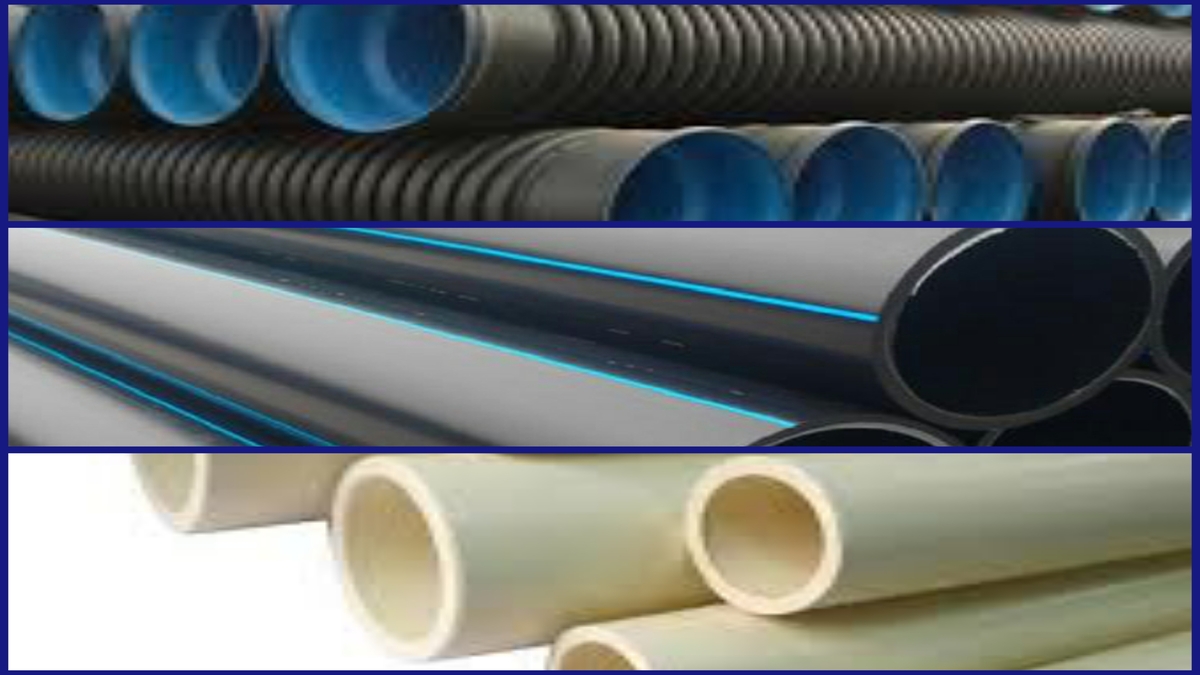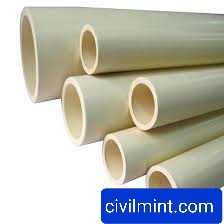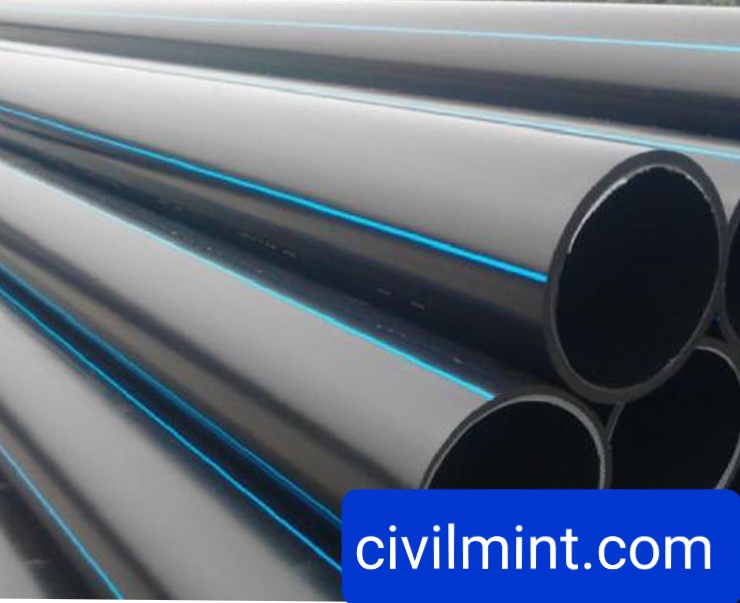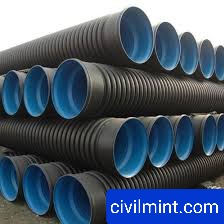
The best pipes for underground drainage are PVC pipe, HDPE pipe and corrugated pipe. These are the most common types of underground drainage pipes.
We will discuss these 3 types of pipes from the perspective of underground drainage system.
Table of Contents
1. PVC Pipe

When it comes to underground drainage, PVC pipe is one of the best materials available.
PVC, short for polyvinyl chloride, is a synthetic plastic polymer used in a wide variety of applications due to its strength, durability, and resistance to corrosion and chemicals.
PVC pipes are commonly used in drainage, irrigation and water supply systems and have been found to be highly effective and long lasting.
One of the main advantages of PVC pipe is its corrosion resistance. Unlike metal pipes, which can rust and corrode over time, PVC pipes are highly resistant to corrosion from soil and other subterranean substances. This makes them ideal for underground drainage systems that may be exposed to moisture and other corrosive substances for extended periods of time.
PVC pipe also has excellent chemical resistance, making it ideal for industrial and agricultural applications. They can be exposed to a wide range of chemicals including acids, alkalis and solvents without degrading or losing their structural integrity. This makes them ideal for underground drainage systems that may come into contact with chemicals from fertilizers and industrial waste.
These types of pipes are highly durable. PVC pipe is strong, impact resistant and can withstand heavy loads without cracking or breaking.
They are also very flexible and can be bent and adapted to the contours of the ground without compromising their structural integrity. This makes them ideal for drainage systems that need to avoid obstacles or follow land contours.
Installation of PVC pipe is also relatively easy and cost-effective. They can be cut to size using simple tools and joined using a variety of fittings and connectors. In addition, PVC pipes are lightweight and easy to handle and transport. This reduces installation costs and speeds up the installation process.
2. HDPE Pipe

When it comes to building underground drainage systems, using high-density polyethylene (HDPE) pipe is a great option for several reasons.
HDPE pipe is very strong and can last a long time, even in harsh conditions. It is also flexible, which means it can be installed easily around obstacles and can handle ground movement without breaking.
Best of all, it is a cost-effective and environmentally-friendly choice. Contractors and property owners like using HDPE pipe because it is easy to install and requires less maintenance over time.
3. Corrugated Pipe

Corrugated pipes are plastic pipes that have a wavy or corrugated exterior. They are made from high-density polyethylene, giving them exceptional strength and durability.
Corrugated pipes are strong, flexible, and easy to install, making them an excellent choice for drainage systems. They can withstand heavy loads without collapsing, making them perfect for road drainage. They are also flexible enough to bend and fit around obstacles in the landscape.
Corrugated pipes are affordable and available in different diameters and lengths to fit different drainage needs.
They can be perforated or non-perforated, depending on the application. Their smooth interior surface enhances water flow and prevents clogging. Corrugated pipes are resistant to chemicals, weather, and abrasions, making them suitable for use in a wide range of applications.
FAQS
PVC and corrugated HDPE pipes are two common choices for underground drainage systems.
PVC pipes are known for being lightweight, durable, and resistant to chemical corrosion.
Corrugated HDPE pipes are known for their flexibility, ease of installation, and ability to withstand impact and abrasion.
While metal pipes are durable, they are generally not recommended for underground drainage systems as they tend to rust and corrode.
The size of the pipe needed will depend on the expected water flow. Consulting a professional can help ensure that the right size is selected.
Yes, a slope is important for proper drainage, as it helps prevent water from pooling and causing damage.
It is typically best to have a professional install an underground drainage system to ensure proper installation and functionality.
